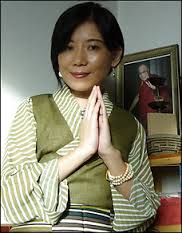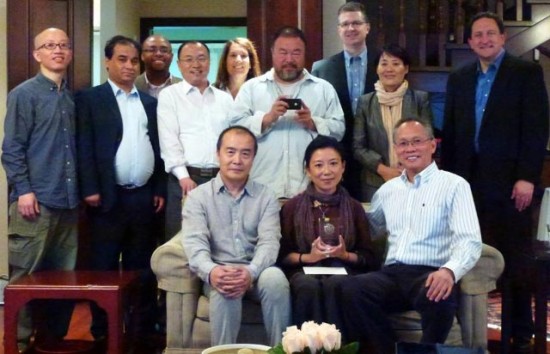Tsering Woeser has always been a story teller. “Thinking back, I have loved stories since I was a child. My earliest memory is narrating the story of the times before leaving Lhasa to a bunch of children in Tawo County, Sichuan. At the time I was four or five,” Woeser once recalled in an interview with Cerise Press. Now, one of Tibet’s most prominent voices, her stories continue to intrigue.
Though born in Lhasa in 1966, Woeser grew up in Sichuan Province where she was educated in Mandarin Chinese. She is able to speak Tibetan but never learned to read or write in her own native language. Her parents were Tibetan but were also staunch supporters and members of the Chinese Communist Party. Her father, a commander in the People’s Liberation Army, taught her to always defer to the party. “I used to believe the army came to Tibet to set Tibetans free,” Woeser confessed in an interview with the Washington Post.
Woeser later went on to attend the Southwest University for Nationalities in Chengdu where she earned a degree in Chinese Literature and emerged an a political poet. It was not until returning to Tibet in March 1990 to take up a position with a state-supported Chinese language literary journal-Tibetan Literature-that Woeser was able to explore and develop her identity as a Tibetan. Witnessing the strict Chinese control of speech and religion within Tibet, Woeser became politicised. Proving that the pen is mightier than the sword, Woeser began to fight back against oppression by documenting it.
In 1999, Woeser published her first book, a collection of poems entitled Xizang Zai Shang (Tibet Above). Her next book, Xizang Biji (Notes on Tibet), which addressed social and political issues within Tibet, was published but quickly withdrawn. Soon after, the book was banned in China on account of “political errors.” Because Woeser refused to rescind what she had written she began to face severe consequences; she lost her job, her income, and her pension. Despite such pressure, Woeser continued writing about Tibet.
After Notes on Tibet was banned, Woeser simply decided to publish elsewhere. Several of her books have since been published in Taiwan and she continues to release articles and commentary regarding Tibet online. In spite of the repercussions, Woeser will not submit. She has undergone house arrest and harassment, her websites have been hacked, infected, and shut down, her movements are restricted and her life under constant surveillance, but still she continues to write about Tibet from inside China. She dedicates her continued effort to the 130+ self-immolators, and promises that she will never give up.
For her courage Woeser has achieved worldwide recognition and has been honoured with several very prestigious awards: the Freedom of Expression Prize (2007); the Courage in Journalism Award (2010); the Prince Claus Award (2011) and the International Women of Courage Award (2013). Unfortunately, Woeser is routinely denied a passport on the grounds of “national security,” and has thus been barred from traveling to receive awards.
Regardless of unrelenting intimidation, Woeser knows the importance of her voice. In an interview with Sampsonia Way, an online magazine for literature, free speech, and social justice, Woeser says, “If I don’t record and speak out, our nation will be silenced, history will be altered…and younger generations will have no way of knowing. This one-person media is the only weapon given to those whose rights have been deprived, and I will carry it until the end.”






 Print
Print Email
Email













